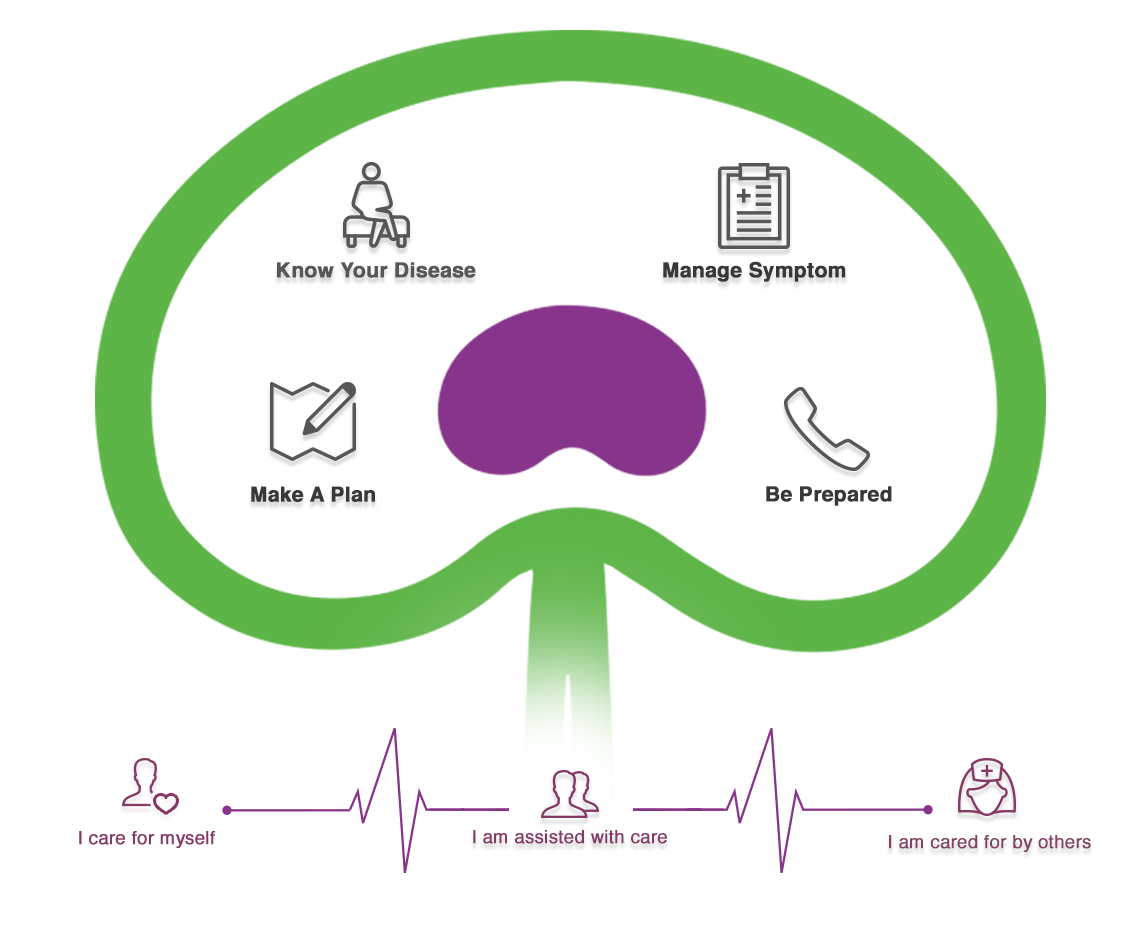Pain
Chronic pain is pain that lasts for a long time (months to years). It’s usually due to a health issue that’s hard to treat or can’t be cured. It can take over your life, making you feel depressed, anxious, and/or angry. It can also affect your sleep, relationships, activity level, and how you enjoy life.
Managing pain works best when you play an active role. It usually includes a combination of treatments, such as physiotherapy, exercise, and medicine. You may have to try a few treatments before you find the one that works the best for you. Learning to relax and to change negative thinking can help you cope with pain. It’s important to stay in touch with your care provider to make sure your pain is being managed.
- Pace yourself. Break larger jobs into small jobs or save the harder jobs for when you have less pain. Rest often during the activity.
- Keep moving. Do gentle exercises like walking, swimming, and riding the stationary bike every day. Stay flexible by stretching every day.
- Relaxation techniques. Ask if someone on your healthcare team can help you get started. You can also learn some on your own. Some techniques include:
- Deep breathing exercises: Slow your breathing to 5 to 6 breaths a minute. Breaths should be deep and fill your lungs.
- Meditation: Sit or lie in a comfortable position for 20 minutes. Be aware of your breathing, your sensations (including your pain), your thoughts, and feelings.
- Guided Imagery: Form mental images to take a visual journey to a peaceful, calming place or situation.
- Yoga: Can relax your breathing, ease muscle tension, and energize your mind and body.
- Massage: Helps reduce tension and pain.
- Think positively. Positive thinking can ease pain.
- Do an activity or hobby you enjoy.
- Get a good night’s sleep. Pain may make you tired. Pain may be worse if you don’t get enough sleep. Talk to your doctor if pain is causing sleep problems.
- Keep a pain diary. Keep a record of your pain levels throughout the day and how your pain affects your mood, activities, sleep. Sharing your diary with your care provider can help your provider decide the best way to manage your pain.
Your care provider may suggest treatment options such as physiotherapy, acupuncture, acupressure, or TENS (transcutaneous electrical nerve stimulation).
If you take pain medicine, let your care provider know how it’s working for you or if you’re having side effects (such as constipation or drowsiness). Take your pain medicine as ordered so that your pain doesn’t get out control.
Talk to your care provider before taking over-the-counter medicine.



